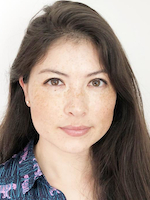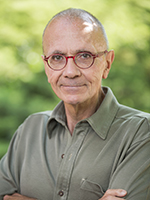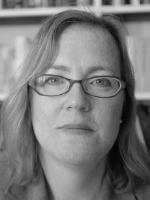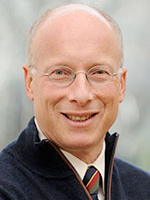 | Diana Chigas is Professor of the Practice of International Negotiation and Conflict Resolution at the The Fletcher School and Senior International Officer and Associate Provost at Tufts University. She is responsible for leading the development and realization of a university-wide global strategy. Previously Chigas was Director of the Reflecting on Peace Practice Program and Co-Director of collaborative learning at CDA. Chigas was a contributor to the 2012 OECD DAC guidelines on evaluation of conflict prevention and peacebuilding and to guidance for DFID on evaluation of peacebuilding and conflict sensitivity. She has over 25 years of experience as a facilitator and consultant in negotiation and conflict resolution, including preventive diplomacy in the OSCE and the Georgian–Ossetian peace process. Her current research through the Institute for Human Security at The Fletcher School examines the cumulative impacts of peacebuilding and the dynamics of corruption in conflict-affected and fragile contexts in order to develop more effective anti-corruption programming. |
 | Sulmaan Khan is Assistant Professor of International History and Chinese Foreign Relations at The Fletcher School. He also directs the Water and Oceans Program at the Center for International Environment and Resource Policy. He received a Ph.D. in History from Yale University in 2012. He is the author of Muslim, Trader, Nomad, Spy: China’s Cold War and the Tibetan Borderlands (2015). He has published articles on Cold War and diplomatic history, and his research has been supported by the Cold War International History Project at the Woodrow Wilson International Center for Scholars. He has also written for The Economist, The American Interest, and Prospect on topics ranging from Burmese Muslims in China to dolphin migration through the Bosphorus. |
 | Elisabeth Leake is the Lee E. Dirks Chair in Diplomatic History at The Fletcher School. With an extensive background in the history and politics of Afghanistan, Pakistan and India, Dr. Leake's expertise lies in South and Southwest Asia, global decolonization, and her teaching emphasizes the role of non-state actors in diplomacy and international relations. She was also at the University of Leeds in the United Kingdom as an associate professor of international history from 2016-2022. She previously held a three-year Leverhulme Early Career Fellowship at Royal Holloway, University of London. She has been widely published, with her articles having appeared in such journals as Modern Asian Studies, Journal of Contemporary History, the Journal of Asian Studies, International History Review, and Historical Journal. |
 | Richard Shultz is Professor of International Politics and Director of the International Security Studies Program at The Fletcher School. Previously he has served as Olin Distinguished Professor of National Security at the U.S. Military Academy, Secretary of the Navy Senior Research Fellow at the Naval War College, and Brigadier General Oppenheimer Chair of War-fighting Strategy in the U.S. Marine Corps. Since the mid-1980s, he has served as a security consultant to various U.S. government agencies concerned with national security. His most recent books include Prioritizing Security Sector Reform: A New U.S. Policy (2016) and The Marines Take Anbar: The Four-Year Fight to Defeat al Qaeda in Iraq (2013). He also recently published the monograph length study Military Innovation in War: It Takes a Learning Organization - A Case Study of Task Force 714 (2016). |
 | Monica Toft is Professor of International Politics and Director of the Center for Strategic Studies at The Fletcher School. She is also a research associate at the Blavatnik School of Government at the University of Oxford and at the Harvard Kennedy School’s Belfer Center for Science and International Affairs. While at Harvard, she directed the Initiative on Religion in International Affairs and served as Assistant Director of the John M. Olin Institute for Strategic Studies. Toft’s areas of research include international security, ethnic and religious violence, civil wars, and demography. Her most recent books include Securing the Peace (2011), Political Demography (2012), and God’s Century (2012). Toft holds an M.A. and Ph.D. in Political Science from the University of Chicago. |
 | Joel Trachtman is Professor of International Law at The Fletcher School. His recent books include The Future of International Law: Global Government (2013) and The Tools of Argument (2013). Trachtman has served as a member of the boards of the American Journal of International law, the European Journal of International Law, the Journal of International Economic Law, the Cambridge Review of International Affairs, and the Singapore Yearbook of International Law. He has consulted for a number of governments and international organizations, including the United Nations, the World Bank, and the OECD. From 1998 to 2001, he was Academic Dean of The Fletcher School, and during 2000 and 2001, he served as Dean ad interim. He has been a visiting professor at Basel, Hamburg, Harvard, and Hong Kong. He graduated in 1980 from Harvard Law School, where he served as editor in chief of the Harvard International Law Journal, and practiced in New York and Hong Kong for 9 years before entering academia. |






